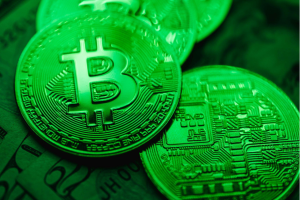Bank of Israel proposes framework to regulate stablecoins
The goal of the regulation is to allow activity in stablecoins while managing the risk inherent in using them, and adjusting the consumer protections and prudential requirements to this unique activity.

The Bank of Israel has announced it is examining the issue of activity in digital assets, and their impact on the areas under the Bank’s purview as part of its mission to maintain financial stability, manage the monetary policy, and regulate the payment systems in Israel.
To that effect, the central bank established a committee headed by Deputy Governor Andrew Abir to examine the matter from several perspectives: prudential, regulatory, technological, monetary, and legal.
Regulation to allow stablecoins while managing its inherent risk inherent
The decision comes in light of the increased interest in digital assets and the risks derived from them. Stablecoins are getting most of the attention from Israel’s central bank, which is formulating a document of principles for regulating stablecoin activity in Israel.
“A stablecoin is a digital asset that operates on a technological infrastructure, and aims to stabilize its value by pegging it to another asset’s value, and the coin’s issuer operates a mechanism that maintains the stability of the coin’s value. In contrast to other digital assets, stablecoins have the potential to serve not only as an investment asset but also as a means of payment”, Bank of Israel stated.
“The Bank of Israel’s function, as defined in law, requires the Bank of Israel’s regulation and supervision of means of payment. The principles document refers to regulating the activity of stablecoins in Israel. The goal of the regulation is to allow activity in stablecoins while managing the risk inherent in using them, and adjusting the consumer protections and prudential requirements to this unique activity.”
The document proposes rules for stablecoin activity that the Bank of Israel recommends promoting through legislation or establishing as part of the regulator’s directives, including:
- To establish a requirement according to which the reserve assets that will be held by a stablecoin issuer will cover 100 percent of its liabilities to the coin holders. This requirement will greatly reduce the prudential risk deriving from the activity in stablecoins.
- In terms of the identity of the regulators, it is proposed that stablecoin issuers will require licensing: for a coin that does not have systemic importance, the licensing shall be by the Capital Market Authority; otherwise the licensing shall be by the Banking Supervision Department. In the document, criteria are proposed for defining a stablecoin as having systemic importance.
- A stablecoin that is declared to be a controlled payment system shall be overseen by the payment systems oversight function at the Bank of Israel.
- In order to enhance the supervisory efficiency, it is proposed to establish coordination mechanisms among the various relevant regulators.









